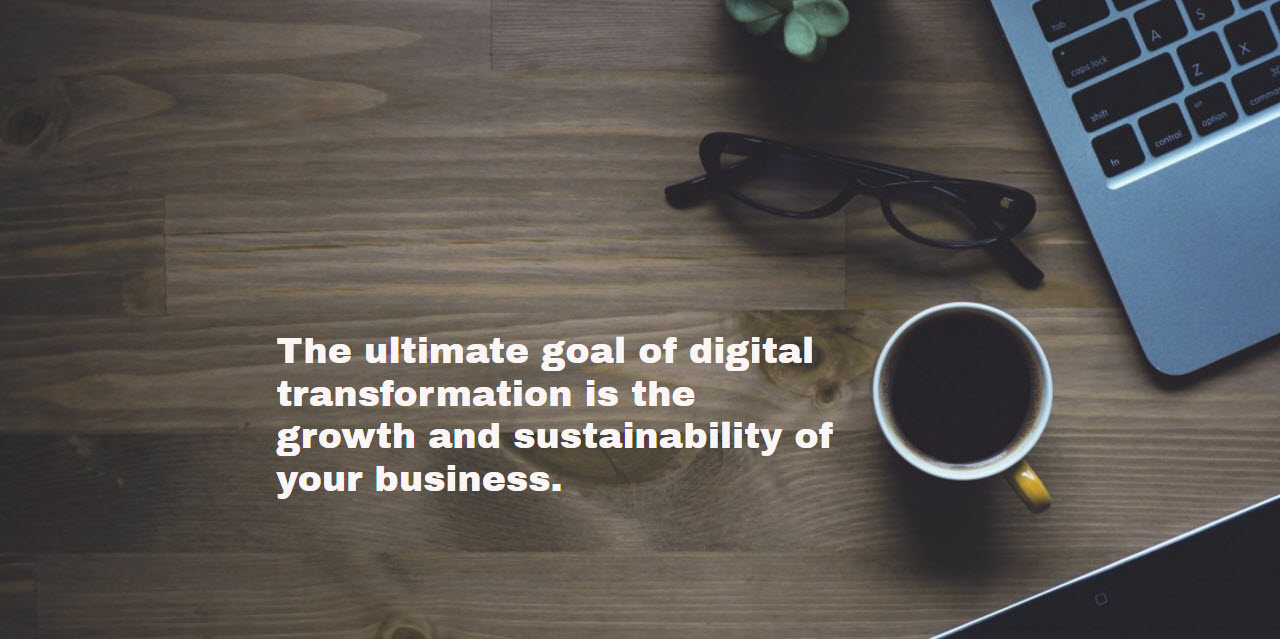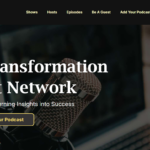“It’s the economy, stupid” is one of the most memorable slogans of past presidential campaigns. Of course, when trying to defeat a seated president, one typically limits the scope of the discussion somewhat to best help voters understand how the nation would change under new leadership. But after the election, when the transformation work truly begins, a narrow focus on one subject could lead to disaster in other areas. Ultimately the challenge is to improve the country as a whole.
Similarly, when discussing digital transformation (DX) of companies, there are a number of areas that might be emphasized. You have no doubt noticed various pundits espousing their favorites. Difficulties arise when companies begin to implement and focus on one of these areas to the exclusion of others. But it could be catastrophic to think you are travelling smoothly down the digital transformation highway only to suddenly wake up and realize you were on the wrong road.
Confusion about the Goal
For example, some make much ado about the “digital” part of digital transformation. You can read articles about DX being anything from moving to a paperless office to modernization of a company’s current technology. Some actually seem to believe they achieved digital transformation years ago when they implemented an ERP system. And then there are those who contend that everyone should learn to code.1 Kind of makes you wonder, doesn’t it? But the technology is only a tool. Digital transformation goes far beyond the use of any technology.
Others will stress that DX is about the customer experience.2 Companies realize that technology is enabling a move from B2B or B2C to effectively one-on-one marketing. There is a conspicuous need to align the customer interface across all channels. But while a true obsession on the customer is a requirement for digital transformation, this still is not the ultimate end of digital transformation.
Speed and agility are widely recognized as a focus of digital transformation. Salesforce CEO Marc Benioff states, “Speed is the new currency of business… You just cannot go fast enough.”3 HP Enterprise CEO Meg Whitman adds, “The future belongs to the fast.”4 Agility is said to bring quick wins and fuel momentum.5 Speed and agility are indeed critical characteristics of a digitally transformed company, but they also are not DX’s purpose.
Some emphasize that digital transformation requires data-driven decisions.6 Data is growing at an exponential pace increasing the opportunity for game-changing results. Deploying analytics throughout the company can improve financial performance, increase productivity, reduce risks, and support faster decision making.7 But data-driven decisions are just another tool – not the eventual goal.
Clayton Christensen notes “The reason why it is so difficult for existing firms to capitalize on disruptive innovations is that their processes and their business model that make them good at the existing business actually make them bad at competing for the disruption. Companies in fact are specifically organized to under-invest in disruptive innovations!” Your company is perfectly suited to achieve the results it is currently getting. Your leadership, skills, processes, culture, history, etc. have combined to bring you to this point. Innovation is required for success in the digital era,8 but innovation is still not the final destination of digital transformation.
By definition, transformation requires breaking out of the status quo. Attaining the proper culture is critical for success. In fact, Brian Solis notes that culture is either the roadblock or gateway to digital transformation.9 Culture is tied very tightly to the key elements of speed, agility, and innovation. It likely requires changing even your leadership style to better empower and engage your staff.10 But while you will not attain digital transformation without a culture that supports it, culture is still not the aim of DX.
Digital transformation is enabling new business models. There is a growing realization that each company plays a role outside its own four walls and even outside its industry. By recognizing a larger ecosystem11, organizations are finding new ways to generate value through rich networks of collaboration, connection and interdependence. Yet moving to a new business model is not the objective of digital transformation.
The Ultimate Objective
We’ve talked about a lot of things that contribute to DX success yet none of them define the final objective. The ultimate goal of digital transformation is the growth and sustainability of your business. Plain and simple.
Your company has to transform in order to survive. Your customers, your business ecosystem, your competitive landscape, and your employees are rapidly changing – and the pace of that change is accelerating. This isn’t about making slight adjustments. It requires a true, focused transformation affecting every aspect of your business.
Most executives believe that digital disruption has already materially increased the risk of completely eliminating their business.12 The time to start is now – before it’s too late.
Sources:
1 McFarland, Dave. “The Real Reason Why Everyone Should Learn to Code.”Treehouse Blog. Treehouse Island, Inc., 20 Nov. 2014. Web. 27 Aug. 2016. http://blog.teamtreehouse.com/havent-started-programming-yet
2 Accenture Interactive – Point Of View Seri. Accenture Interactive – Point of View Series Digital Transformation (n.d.): n. pag. Accenture.com. Web. https://www.accenture.com/us-en/~/media/Accenture/Conversion-Assets/DotCom/Documents/Global/PDF/Technology_7/Accenture-Interactive-Digital-Transformation.pdf
3 Lauchlan, Stuart. “Davos 2016 – No Speed Limit in Pursuit of Digital Transformation.” Diginomica. DIGINOMICA LTD, 21 Jan. 2016. Web. 27 Aug. 2016.http://diginomica.com/2016/01/21/davos-2016-no-speed-limit-in-pursuit-of-digital-transformation/
4 Lauchlan, Stuart. “Davos 2016 – No Speed Limit in Pursuit of Digital Transformation.” Diginomica. DIGINOMICA LTD, 21 Jan. 2016. Web. 27 Aug. 2016.http://diginomica.com/2016/01/21/davos-2016-no-speed-limit-in-pursuit-of-digital-transformation/
5 Insite. “Business Transformation: Adopting Digital Agility.” ECommerce Insights. Insite Software, 23 July 2015. Web. 27 Aug. 2016. http://www.insitesoft.com/blog/business-transformation-adopting-digital-agility/
6 “Why Digital Transformation Needs a Data-Driven Culture.” Why Digital Transformation Needs a Data-Driven Culture. Paragon Solutions, 9 May 2016. Web. 27 Aug. 2016. http://www.consultparagon.com/blog/digital-transformation-data-driven-culture
7 Harvard Business Review. The Evolution of Decision Making: How Leading Organizations Are Adopting a Data-Driven Culture (n.d.): n. pag. Harvard Business Review. SaS. Web. 20 Aug. 2016. https://hbr.org/resources/pdfs/tools/17568_HBR_SAS%20Report_webview.pdf
8 Newman, Daniel. “Why Micro-Innovation Should Be At The Core Of Your Digital Transformation.” Forbes. Forbes Magazine, 2 Feb. 2016. Web. 27 Aug. 2016. http://www.forbes.com/sites/danielnewman/2016/02/02/why-micro-innovation-should-be-at-the-core-of-your-digital-transformation
9 Solis, Brian. “Culture Is Either the the Roadblock or Gateway to Digital Transformation – Brian Solis.” Brian Solis. N.p., 8 June 2016. Web. 27 Aug. 2016. http://www.briansolis.com/2016/06/empowered-culture-gateway-digital-transformation/
10 Bennett, Terry. “Why Digital Transformation Must Begin with You.” The Institute for Digital Transformation. IDT, 6 Apr. 2016. Web. 27 Aug. 2016. www.institutefordigitaltransformation.org/why-digital-transformation-must-begin-with-you/
11 Kelly, Eamonn. “Business Ecosystems Come of Age: Part of the.” Deloitte University Press. N.p., 15 Apr. 2015. Web. 27 Aug. 2016. http://dupress.com/articles/business-ecosystems-come-of-age-business-trends/
12 Bradley, Joseph, Jeff Loucks, James Macaulay, Andy Noronha, and Michael Wade. “Digital Vortex -How Digital Disruption Is Redefining Industries.”AccessScience (n.d.): n. pag. IMD.org. IMD and Cisco, June 2015. Web. 20 Aug. 2016. http://www.imd.org/uupload/IMD.WebSite/DBT/Digital_Vortex_06182015.pdf
About the Author:






This is by far the best article I have read about Digital Transformation. Amazing to see that in almost 2 years not many people have taken the time to give their opinions and/or observations. I am very much in line with Brian Solis’ comments about changing the companies’ cultures. I think that a successful DX depends for 90% on the people and their willingness to change and only 10% on all technological aspects. Actually when people will not change and there are countries in this world where this is the case (France could be mentioned as an example or Italy), businesses will very much suffer with it, not to say will disappear over time. I concur with the ultimate goal of DX. Merci !
Thanks, Marc! Sometimes it’s hard to understand how things get so caught up in the hype that they lose their meaning…but there are numerous examples where this occurs – especially in the technology field. For example, I’ve seen companies claim to have an internal cloud and upon examination, it’s just a corporate data center that they’ve had for decades. The same thing has happened with the term ‘digital transformation’. Some will even tell you that they did a digital transformation years ago because they use an ERP system.
We will keep banging the drum that ultimate goal of digital transformation is the growth and sustainability of your business….& that the transformation is necessitated simply because the world around you has radically changed from what it was just a few years ago — & that change is accelerating.